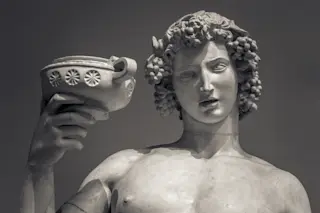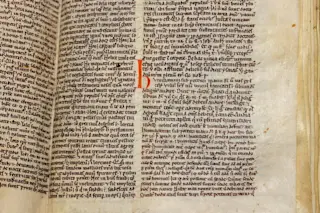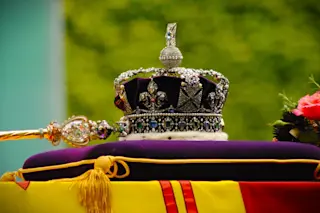Over at Culture of Science Sheril Kirshenbaum posts a figure from the NSF displaying what proportion of those without high school educations and those with college educations accept the scientific status of astrology. It’s pretty clear to me that this is the ASTROSCI variable from the General Social Survey. It asks:
Would you say that astrology is very scientific, sort of scientific, or not at all scientific?
It’s also nice that this question was only asked in the latter half of the 2000s. So it’s timely in terms of demographic breakdowns. Speaking of which, here are a whole host of classes and their attitudes toward astrology’s scientific status:
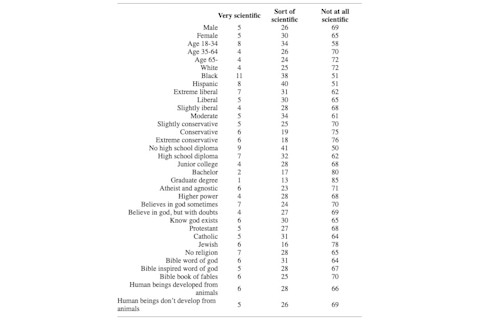
But what about intelligence? To look at that I used the WORDSUM variable, which is a 10-question vocabulary test which has a 0.70 correlation with IQ. Below are the attitudes toward astrology by WORDSUM score (0 = 0 out of 10 score, 10 = 10 out of 10 score):
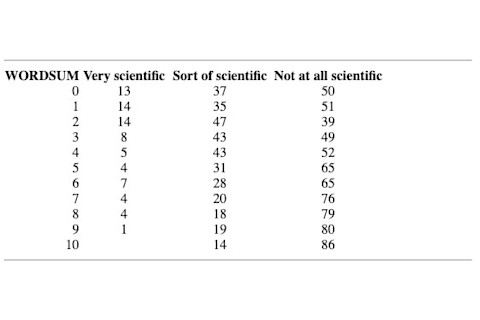
It’s pretty straightforward, the more intelligent are more skeptical of astrology. I wanted to display this in a graphical format. So I created an “astrology is scientific score” like so:
Score = % very scientific X 2 + % sort of scientific X 1 + % not at all scientific X 0
In other words, the higher the score for a class, the more accepting that class is of astrology’s scientific status. Here are the results:
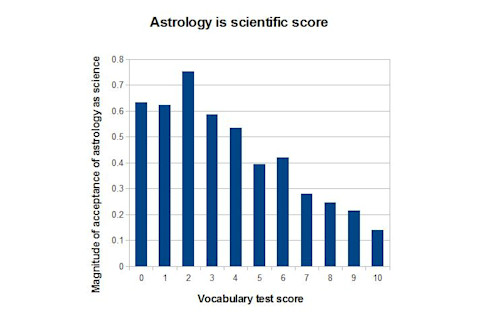
astroscore
There’s a pretty clear relationship between being dumb, and being more susceptible to the idea that astrology is a real science. Why? I think it’s because astrology is an eminently intuitive, plausible, and seductive, concept. Modern astronomy grew out of astrology, which is a cross-cultural enterprise which emerges in distinctive and unrelated civilizations. And why not? Most humans experience awe and wonderment when they see the stars. On first blush the idea that they may have something to do with the fates doesn’t seem ludicrous. The less reflective and dull are possibly less susceptible by modernist conditioning toward skepticism of these intuitive concepts which have been banished to the outer darkness of superstition by science.*
* Organized religion has also played a role in this skepticism. In particular, the Abrahamic religions, which evolved in an environment of competition with late antique ‘astral religion.’ But this is obviously not always t he case. Most forms of Hinduism are steeped in astrology as very much a valid and utilitarian enterprise. And in any case the campaigns by Christianity and Islam against astrology has often been fitful and futile.


